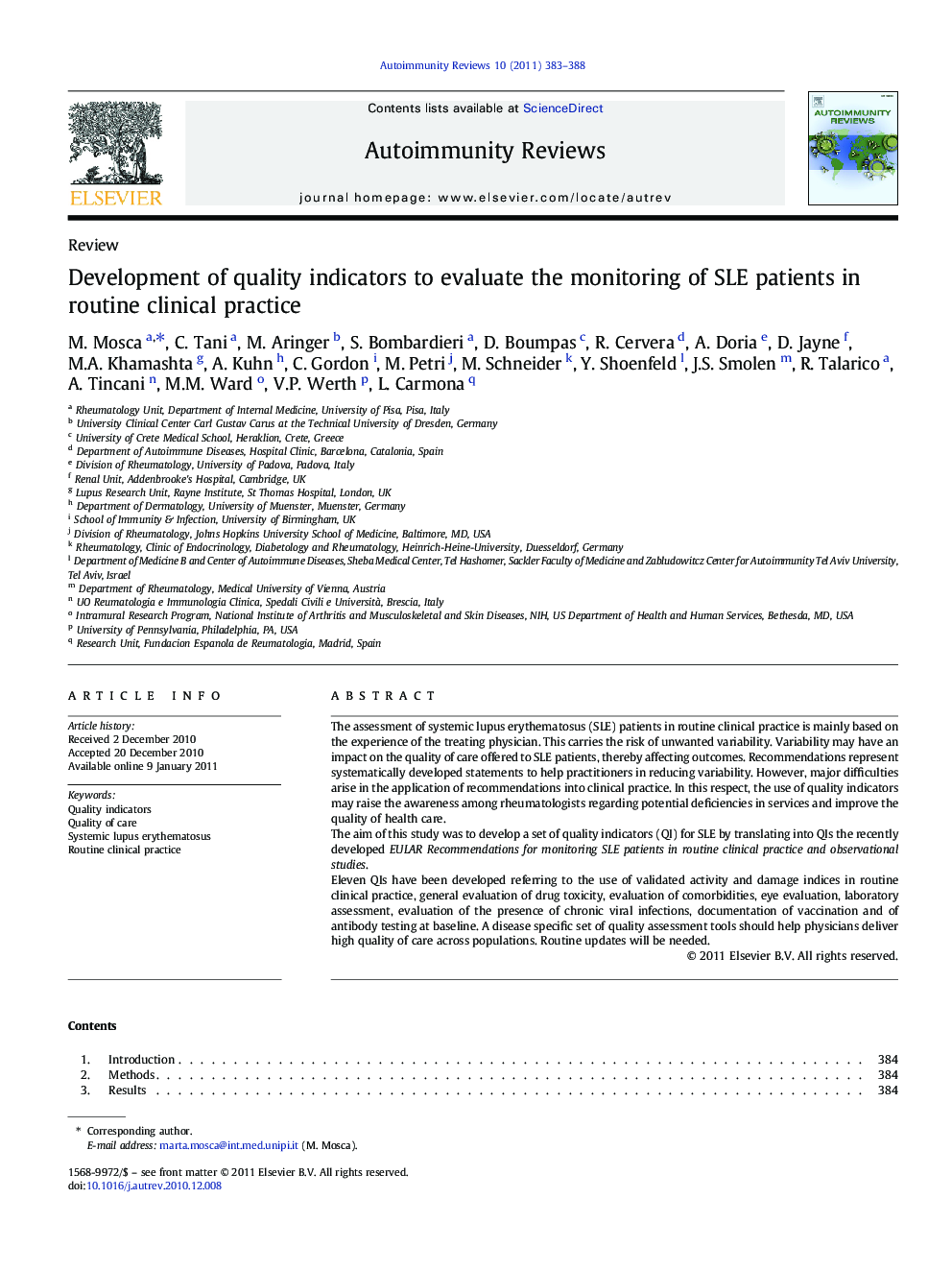| Article ID | Journal | Published Year | Pages | File Type |
|---|---|---|---|---|
| 3341966 | Autoimmunity Reviews | 2011 | 6 Pages |
The assessment of systemic lupus erythematosus (SLE) patients in routine clinical practice is mainly based on the experience of the treating physician. This carries the risk of unwanted variability. Variability may have an impact on the quality of care offered to SLE patients, thereby affecting outcomes. Recommendations represent systematically developed statements to help practitioners in reducing variability. However, major difficulties arise in the application of recommendations into clinical practice. In this respect, the use of quality indicators may raise the awareness among rheumatologists regarding potential deficiencies in services and improve the quality of health care.The aim of this study was to develop a set of quality indicators (QI) for SLE by translating into QIs the recently developed EULAR Recommendations for monitoring SLE patients in routine clinical practice and observational studies.Eleven QIs have been developed referring to the use of validated activity and damage indices in routine clinical practice, general evaluation of drug toxicity, evaluation of comorbidities, eye evaluation, laboratory assessment, evaluation of the presence of chronic viral infections, documentation of vaccination and of antibody testing at baseline. A disease specific set of quality assessment tools should help physicians deliver high quality of care across populations. Routine updates will be needed.
► Variability in patients assessment may have an impact on the quality of care. ► Eleven quality indicators have been developed based on EULAR Recommendations. ► A disease specific set of quality indicators should help physicians deliver high quality of care. ► Routine updates will be needed.
